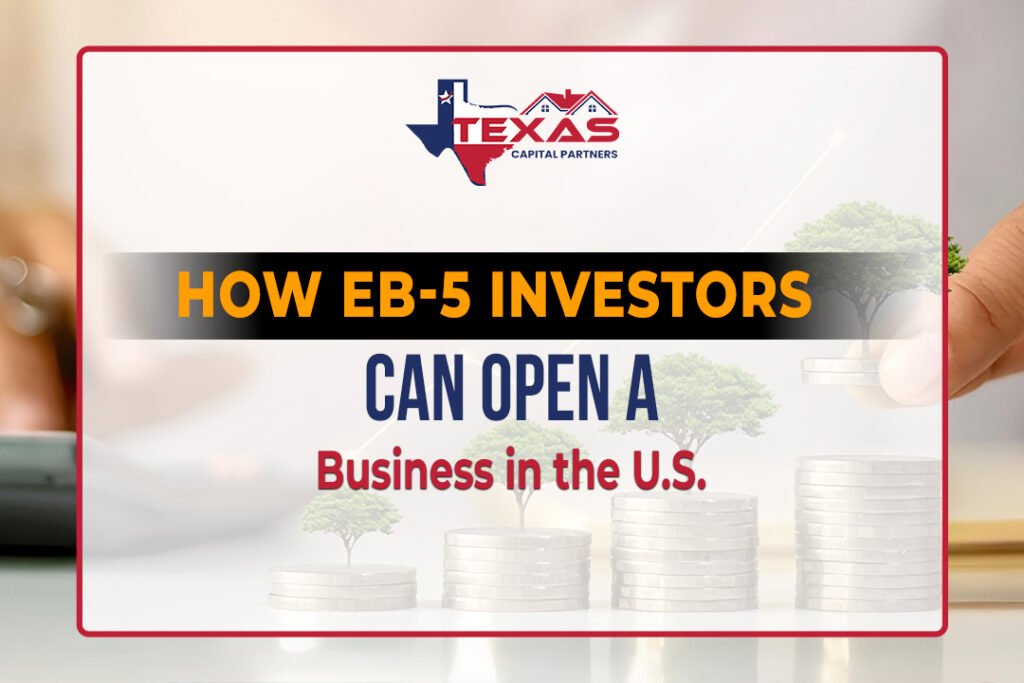The United States has long been a top destination for global investors seeking new opportunities, stable returns, and a pathway to lawful permanent residency. The EB-5 Immigrant Investor Program offers foreign nationals a unique chance to invest in the U.S. economy while obtaining a green card for themselves and their immediate family. One of the most promising routes within this program is establishing and operating a U.S.-based business. In this blog post, we explore how EB-5 investors can successfully open a business in the United States, from understanding the program’s framework to navigating practical steps and real-world challenges.
Section 1: Overview of the EB-5 Visa Program
The EB-5 visa, administered by the U.S. Citizenship and Immigration Services (USCIS), was created in 1990 to stimulate the U.S. economy through job creation and capital investment by foreign investors.
Eligibility Requirements
To qualify for an EB-5 visa, an investor must:
- Invest in a new commercial enterprise.
- Create or preserve at least 10 full-time jobs for qualifying U.S. workers within two years of the investor’s admission to the United States.
- Be actively involved in the management or policy-making of the business.
Investment Amounts
The minimum investment thresholds are:
- $1.05 million in a standard area.
- $800,000 in a Targeted Employment Area , which includes rural areas or regions with high unemployment.
Investors may choose to invest either directly in a business they control or indirectly through a government-approved Regional Center.
Section 2: Steps to Open a Business as an EB-5 Investor
Opening a business under the EB-5 program requires careful planning, legal compliance, and strategic insight. Below are the essential steps to guide prospective investors:
1. Choosing the Right Business Type
Selecting the appropriate business model is critical. EB-5 investors can consider:
- Startups – Innovative and flexible, but require thorough planning and market validation.
- Franchises – Offer brand recognition and proven systems, reducing operational risks.
- Acquisition of Existing Businesses – Allows faster setup, but must meet job creation and compliance requirements.
2. Legal Considerations
Legal compliance is paramount. EB-5 investors must ensure:
- The business is lawfully established in the U.S.
- All permits, licenses, and registrations are obtained at the federal, state, and local levels.
- Corporate structures (LLC, Corporation, Partnership) are aligned with immigration and business objectives.
Working with an immigration attorney and corporate lawyer is essential to avoid costly mistakes.
3. Working with Professionals
Launching a successful EB-5 business requires collaboration with experts:
- Immigration Attorneys: Ensure proper documentation, filing of I-526 and I-829 petitions, and visa compliance.
- Business Consultants: Assist with business planning, feasibility studies, and operations setup.
- Certified Public Accountants : Handle tax planning, financial projections, and regulatory filings.
- Franchise Brokers or Regional Center Representatives : Provide access to EB-5-compliant opportunities.
Section 3: Benefits of Opening a Business in the U.S. as an EB-5 Investor
Opening a business under the EB-5 visa program offers distinct advantages:
1. Pathway to Permanent Residency
The EB-5 program provides a direct route to a U.S. green card. If the investment meets all criteria including capital deployment and job creation—the investor, spouse, and unmarried children under 21 can obtain permanent residency.
2. Economic Impact and Job Creation
By launching a business, EB-5 investors contribute to:
- Job creation in local communities.
- Economic growth through capital investment.
- Innovation and diversity in the U.S. marketplace.
Section 4: Challenges and Considerations
While the rewards are significant, EB-5 investors must navigate several challenges:
1. Market Research and Competition
Understanding the U.S. market is crucial. Investors should:
- Conduct thorough market research.
- Identify competitive advantages.
- Assess customer demand, especially when entering saturated sectors.
2. Economic Fluctuations
The U.S. economy is dynamic. Factors like inflation, changing regulations, and political shifts can impact business performance. Investors should:
- Build financial buffers.
- Monitor industry trends.
- Adapt quickly to changing conditions.
Conclusion
The EB-5 Immigrant Investor Program offers a compelling opportunity for foreign nationals to build a future in the U.S. while contributing to the economy through entrepreneurship. By understanding the program’s requirements, choosing the right business model, and working with trusted professionals, investors can successfully launch and manage businesses that benefit both themselves and their communities.
Whether you’re interested in a franchise, tech startup, or manufacturing unit, the U.S. offers a fertile landscape for growth and innovation. Explore your EB-5 options today—and take the first step toward building your business and life in America.



